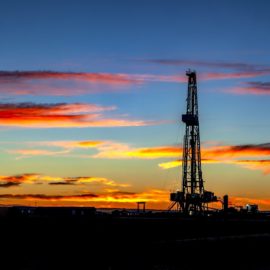
By another title, this was in the paper today. I found it with this title on the Washington Post. Simply stated, there are costs to climate change fixes but some we need to accept.
An author of the latest United Nations report on climate change says we must act “now or never” to limit carbon emissions. But Russia’s barbaric invasion of Ukraine threatens to take the “now” option off the table — unless we accept some unattractive trade-offs. Among those painful choices is requiring a few majestic bald eagles to give what Abraham Lincoln called “the last full measure of devotion.” Their sacrifice must not be in vain. The big picture: It is imperative, geopolitically and morally, to punish Russia by choking off its lucrative sales of oil and natural gas. But doing so sent gasoline and diesel prices skyrocketing. It has also left industrialized nations scrambling to find new sources of fossil fuels — and to reconsider attitudes toward methods of producing energy that have risks and side effects many of us would prefer to avoid.
washingtonpost.com
The Biden administration came in with climate change on their minds. Then Russia invaded the Ukraine and the world needed to replace the oil and gas they got from Russia.
President Biden came into office promising that his administration would lead the world toward a clean-energy future. But his task right now is to lead the world in responding to Russia’s unprovoked aggression — which he has called genocide — and that means doing whatever he can to help other Western nations wean themselves from Russian oil and gas. Biden also has to be mindful that inflation, led by soaring gasoline prices, could be a decisive issue in November’s midterm elections. Biden has announced the release of an unprecedented 180 million gallons of oil from the nation’s Strategic Petroleum Reserve over the next six months. He has implored domestic oil producers to pump more from existing wells and drill more on existing leases. He has temporarily suspended a rule that prohibits gas stations from selling a particularly “dirty” ethanol-gasoline mixture in the summer months. All of these moves are in the wrong direction, in terms of saving the planet. Jim Skea, a British climate scientist who served as co-chair of the U.N. Intergovernmental Panel on Climate Change working group that wrote the IPCC’s latest report, said the world needs “immediate and deep” reductions in carbon emissions if we are to limit global warming to no more than 1.5 degrees Celsius by century’s end.
Renewables cannot replace in full the energy lost by the Russia boycott.
But if Russian fossil fuels are to be kept off the market — especially in Europe, which depends heavily on Moscow for energy — the gap cannot immediately be filled by clean energy from solar farms, hydroelectric dams, windmills and other sources. Biden and European leaders are ready to build the infrastructure that will eventually allow American liquefied natural gas, shipped by tanker, to replace Russian natural gas that flows through pipelines. But building those ports, ships and conversion facilities will take years. Germany is especially vulnerable to any potential cutoff of Russian natural gas because of a decision made two decades ago to shut down all of the nation’s nuclear power plants by the end of 2022. Leaders were spurred by concerns about safety — which were reinforced by the 2011 disaster in Fukushima, Japan. But now, if Chancellor Olaf Scholz proceeds to mothball the last three operational nuclear plants, which release no carbon, he could be forced to increase Germany’s use of coal, which spews far more carbon into the atmosphere than does natural gas.
Maybe we need to reconsider energy sources we once avoided, like nuclear energy.
For those, like me, who have serious concerns about the many safety issues nuclear power presents (including where to store all the radioactive waste), it might be time to reconsider. Apocalyptic but extremely rare accidents such as at Chernobyl and Fukushima might be a risk we need to accept, both in the short term to deal with the Russia-Ukraine crisis and in the long run to reduce carbon emissions to net zero. Which brings me to those bald eagles. Earlier this month, a subsidiary of NextEra Energy Resources, a company that operates 154 wind farms across the United States, pleaded guilty in federal court in Wyoming to violating the Migratory Bird Treaty Act and agreed to pay fines and restitution of more than $8 million. The company acknowledged that at least 150 bald or golden eagles had died at its facilities over the past 10 years, and that 136 of those birds had definitely been killed by flying into spinning wind turbine blades.
This is not good and it causes us to pause. But what cost will there be to renewable energy?
I am not unmoved. The bald eagle is our national bird, after all, and seeing one in flight is an unforgettable experience. But bald eagles are thriving across the country. The species was removed from the endangered list more than a decade ago; in 2019, the population of bald eagles in the lower 48 states was estimated at 316,700. Using wind turbines to generate electricity, meanwhile, has a carbon footprint far smaller than that of coal, natural gas or even solar panels. I hate losing a single bald eagle. But I would hate even more losing our singular, endangered planet.
I agree. The right whale is another potential loss as off shore wind farms are developed.

